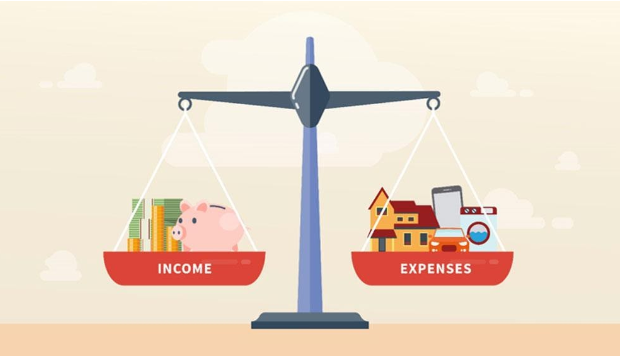Some books for creating a wealthy mindset and unlocking financial literacy and freedom
- Ardent Computing
- Mar 22, 2024
- 5 min read
Updated: Jul 26, 2024

The Psychology of Money by Morgan Housel is a compelling exploration of the often irrational and emotional side of financial decision making.
Written in 2020, the book takes a departure from traditional finance literature, weaving together insightful stories, historical events, and personal experiences to shed light on the complex relationship people have with money.
Housel delves into the psychological and behavioral aspects of financial choices emphasizing the the impact of emotions, the role of luck and the importance of patience in investing. The book challenges common financial misconceptions and offers, practical insights, encouraging readers to reflect on their own beliefs and behaviors surrounding money. With a focus on human behavior rather than just numbers, The psychology of money provides a refreshing and holistic perspective on personal finance. In under two minutes, readers gain valuable lessons and deeper understanding of the forces that shape financial decisions, must read for those seeking a mindful and informed approach to managing their finances.

The Richest Man in Babylon is a timeless classic in personal finance literature written by George S Clason.
First published in 1926,the book imparts financial wisdom through a collection of parables set in ancient Babylon.
In under two minutes, you can understand the essence of this influential work. The book offers practical financial advice through engaging stories that revolve around the principles of wealth building and money management. The lessons delivered by characters like Arkad, the titular richest man ,cover fundamental principles like saving a portion of one’s income investing wisely, avoiding debt and seeking continuous self education in financial matters.

Think and Grow rich by Napoleon Hill is a pioneering self help classic that has shaped the success philosophies of countless individuals since its publication in 1937.
Hill’s insights drawn from in-depth interviews with some of the most successful people of his time provide a blueprint for achieving personal and financial aspirations. This book emphasizes the profound impact of mindset on success ,highlighting the importance of a positive mental attitude and a burning desire for achieving one’s goals. Hill outlines practical steps for turning thoughts into tangible riches, exploring concepts like goal setting, persistence and the power of subconscious mind. Hill’s storytelling prowess weaves together anecdotes and examples that resonate with readers, offering not only a guide to financial wealth but also a roadmap for personal growth. Through its timeless principles and actionable advice, Think and grow rich remains a transformative force, empowering individuals to harness their inner potential and manifest their dreams into reality.
"Want to read more and acquire a holistic understanding on the management of personal finances? Let Fili offer guidance along the route’"

Download now and enjoy!!
FAQs
What topics are typically covered in books on financial literacy?
Books on financial literacy cover a wide range of topics, including budgeting, saving, investing, managing debt, understanding credit scores, retirement planning, taxes, insurance, and estate planning.
Who can benefit from reading books on financial literacy?
Books on financial literacy are beneficial for individuals of all ages and backgrounds, from young adults just starting their financial journey to older adults planning for retirement. Anyone looking to improve their financial knowledge and skills can benefit from reading these books.
Are books on financial literacy suitable for beginners?
Yes, many books on financial literacy are written with beginners in mind. They start with basic concepts and gradually progress to more advanced topics, making them accessible to readers with varying levels of financial knowledge.
Can I find books on financial literacy specific to my country or region?
Yes, there are books available that cater to the financial laws, regulations, and practices specific to different countries or regions. It's important to look for books that are relevant to your own financial context.
How do I choose the right book on financial literacy for me?
When choosing a book on financial literacy, consider factors such as your current level of financial knowledge, your specific financial goals and challenges, the author's credentials and expertise, and reader reviews and recommendations.
Are there any interactive elements or exercises in books on financial literacy?
Some books on financial literacy may include interactive elements such as quizzes, worksheets, case studies, and practical exercises to help reinforce key concepts and encourage active learning.
Can I access additional resources or support after reading the book?
Many authors of financial literacy books offer additional resources, such as online courses, workshops, newsletters, or consultation services, to provide ongoing support and guidance to readers.
Are books on financial literacy only for individuals, or can organizations benefit from them too?
Books on financial literacy can benefit not only individuals but also organizations, including businesses, schools, nonprofits, and community groups, by promoting financial wellness and literacy among employees, students, or members.
How can I apply the knowledge gained from reading books on financial literacy to improve my financial situation?
After reading books on financial literacy, it's important to apply the knowledge gained by creating a budget, setting financial goals, developing a savings plan, investing wisely, and seeking professional advice when needed.
Can I find books on personal finance management specific to my financial goals and situation?
Yes, there are books available that cater to specific financial goals and situations, such as getting out of debt, saving for college, starting a business, or planning for early retirement. It's important to choose a book that addresses your specific needs and priorities.
How do I choose the right book on personal finance management for me?
When choosing a book on personal finance management, consider factors such as your financial goals, your current financial situation, the author's credentials and expertise, reader reviews and recommendations, and the specific topics covered in the book.
Are there any interactive elements or exercises in books on personal finance management?
Some books on personal finance management may include interactive elements such as worksheets, checklists, quizzes, and case studies to help readers apply the concepts learned and assess their progress towards their financial goals.
Can I access additional resources or support after reading the book?
Many authors of personal finance management books offer additional resources, such as online courses, workshops, financial planning tools, or consultation services, to provide ongoing support and guidance to readers.
Are books on personal finance management only for individuals, or can organizations benefit from them too?
Books on personal finance management can benefit not only individuals but also organizations, including businesses, schools, nonprofits, and community groups, by promoting financial wellness and literacy among employees, students, or members.
How can I apply the knowledge gained from reading books on personal finance management to improve my financial situation?
After reading books on personal finance management, it's important to take action by creating a financial plan, setting specific financial goals, tracking expenses, reducing debt, building savings, investing wisely, and seeking professional advice when needed.
You can start with FILI APP - Download now!!




.webp)








Comments